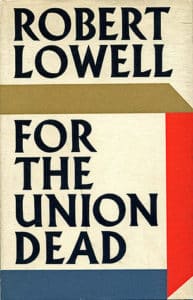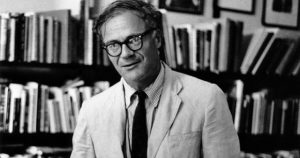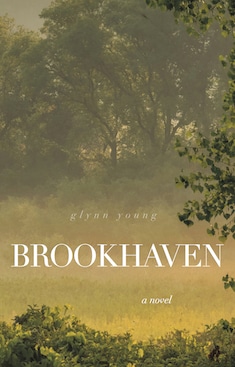You don’t need to look far to see that we have long been using the Civil War as a lens for viewing controversies. The display of Confederate statues and public schools being named after Confederate officers or leaders are two recent examples.
Then there is the case of the parking lot in Boston. You might wonder, legitimately, how a parking lot in Boston connected to the Civil War. And you might wonder how that parking lot inspired one of the best-known poems about the Civil War.

The monument to Col. Shaw and the 54th Massachusetts Infantry Regiment
In 1862, the governor of Massachusetts asked prominent abolitionist Francis Shaw if his son, Robert Gould Shaw, might consider a commission to lead a free black regiment. Months later, Francis found his son, who was with the army in Virginia, and asked him to consider the commission. Robert at first refused, then reconsidered, and decided to accept it. In early 1863, he was given command of the 54th Massachusetts Infantry Regiment.
By June, the regiment was in Georgia, where Shaw risked the ire of his commanding office by refusing an order to shell and fire civilian buildings in Darien, where women and children had taken refuge. The civilians were fired upon, the buildings looted and then burned. A month later, Shaw and his regiment were outside Charleston, South Carolina, and participated in the Second Battle of Fort Wagner.
The regiment showed great courage under fire, but Gould and many of his men were killed. The Confederates, intending an insult, refused to separate Gould’s body from those of his soldiers, as was the custom (officers’ bodies were returned). He was buried with his men, with the simple designation of “unknown.” After the war, the remains of all the soldiers were reinterred at Beaufort National Cemetery in South Carolina. Remains could not be separated, so those of Shaw remain buried with his soldiers.
From 1884 to 1897, a memorial to Shaw and the 54th regiment was designed and erected by Augustus Saint-Gaudens on the Boston Common. Boston grew, land became expensive, and a project emerged to build an underground parking garage, which required excavation of the common (the monument wasn’t harmed but it did have to be propped up). That prompted Robert Lowell to write a poem, “For the Union Dead,” which he read at the Boston Arts Festival in 1960 (it was included as the title poem in a collection published in 1964).
Lowell was a student of Allen Tate, the poet who composed “Ode to the Confederate Dead” (see Part 1), and his poem is, among other things, a conscious tribute to Tate’s. The opening lines describe the ruin of the old South Boston Aquarium and the excavation for the garage, and you wonder where Lowell is going. But he gets there, in an extended reference to Shaw and his men.
For the Union Dead (1960)
Relinquunt Omnia Servare Rem Publicam.
(“They relinquish everything to serve the Republic.”)

in a Sahara of snow now. Its broken windows are boarded.
The bronze weathervane cod has lost half its scales.
The airy tanks are dry.
Once my nose crawled like a snail on the glass;
my hand tingled
to burst the bubbles
drifting from the noses of the cowed, compliant fish.
My hand draws back. I often sigh still
for the dark downward and vegetating kingdom
of the fish and reptile. One morning last March,
I pressed against the new barbed and galvanized fence
on the Boston Common. Behind their cage,
yellow dinosaur steamshovels were grunting
as they cropped up tons of mush and grass
to gouge their underworld garage.
Parking spaces luxuriate like civic
sandpiles in the heart of Boston.
A girdle of orange, Puritan-pumpkin colored girders
braces the tingling Statehouse,
shaking over the excavations, as it faces Colonel Shaw
and his bell-cheeked Negro infantry
on St. Gaudens’ shaking Civil War relief,
propped by a plank splint against the garage’s earthquake.
Two months after marching through Boston,
half the regiment was dead;
at the dedication,
William James could almost hear the bronze Negroes breathe.
Their monument sticks like a fishbone
in the city’s throat.
Its Colonel is as lean
as a compass-needle.
He has an angry wrenlike vigilance,
a greyhound’s gentle tautness;
he seems to wince at pleasure,
and suffocate for privacy.
He is out of bounds now. He rejoices in man’s lovely,
peculiar power to choose life and die—
when he leads his black soldiers to death,
he cannot bend his back.
(You can read the entire poem here.)

Robert Lowell
In much the same way as Tate, Lowell considers the sacrifices made by faceless men, their sculpted likeness erected far from where their bodies are buried. These were sacrifices that were made, collectively, by towns across New England, commemorated on “a thousand small town … greens” and church graveyards “quilted” by the frayed flags of the Union army.
Unlike Tate’s poem, which maintains its awareness of the cemetery and thus the past, Lowell’s turns from its memory of the war and returns to the parking garage that will house “giant finned cars forward like fish.” It’s a way of asking what the courageous, brave sacrifice of these men actually achieved. It’s also a way of asking if something like the Boston Common, with its monument to Shaw and his men and its place more broadly in American history, has not become nothing more than a roof for a parking garage.
Next week: The Civil War Poems of Walt Whitman
Last week: Poetry and Remembering the Civil War: Allen Tate
Related: Robert Lowell reads “For the Union Dead”
Photo by NathalieSt, Creative Commons, via Flickr. Post by Glynn Young, author of Poetry at Work and three novels: Dancing Priest, A Light Shining, and the newly published Dancing King.
__________________________

“I require all our incoming poetry students—in the MFA I direct—to buy and read this book.”
—Jeanetta Calhoun Mish
- Poets and Poems: Alison Blevins and “Where Will We Live if the House Burns Down?” - July 1, 2025
- Poets and Poems: Paul Pastor and “The Locust Years” - June 26, 2025
- What Happened to the Fireside Poets? - June 24, 2025


[…] morning I read about the Civil War—and the excavation of the Boston Common to build an underground parking garage. Those two go together because the Common is the site of a […]